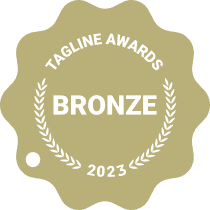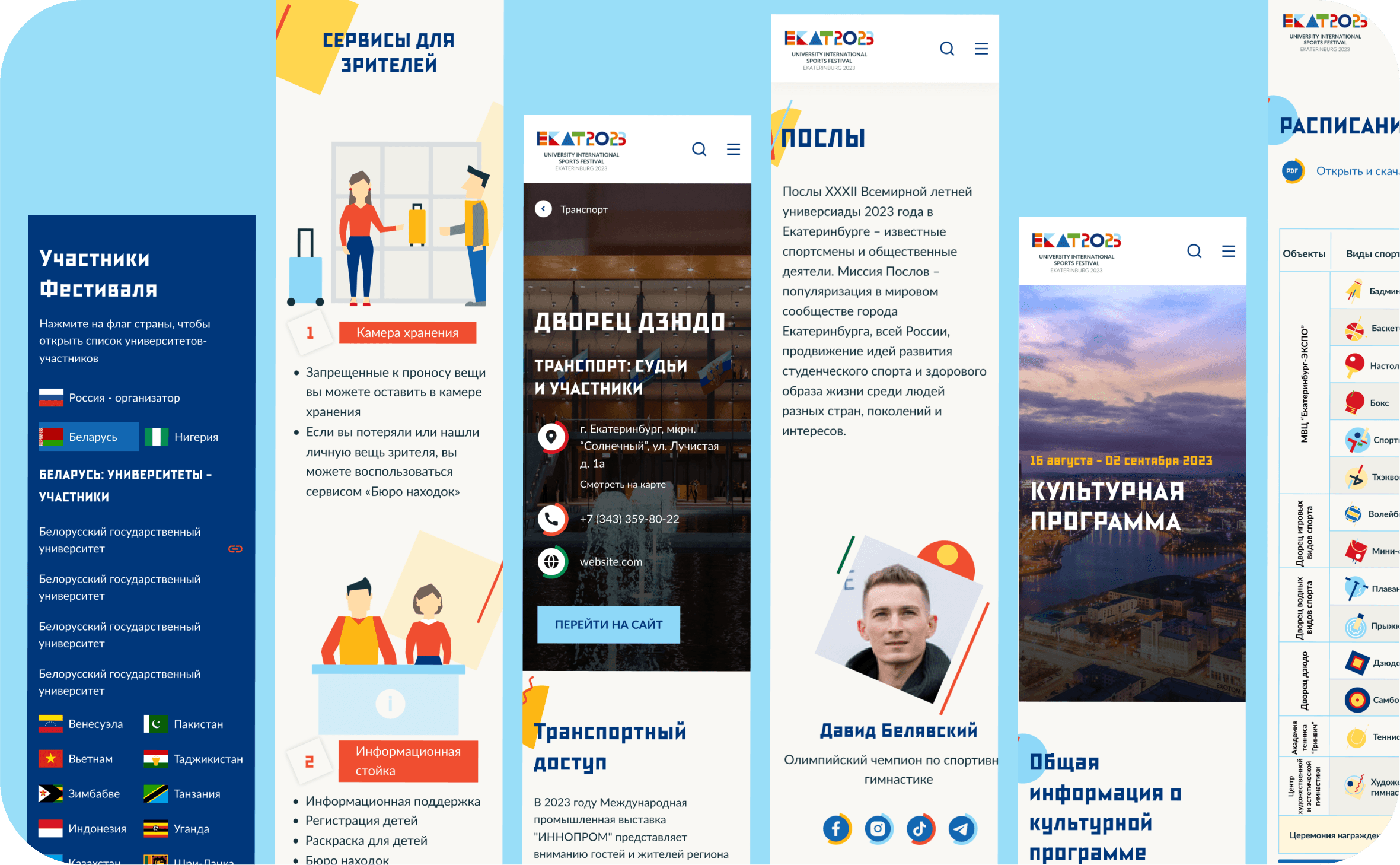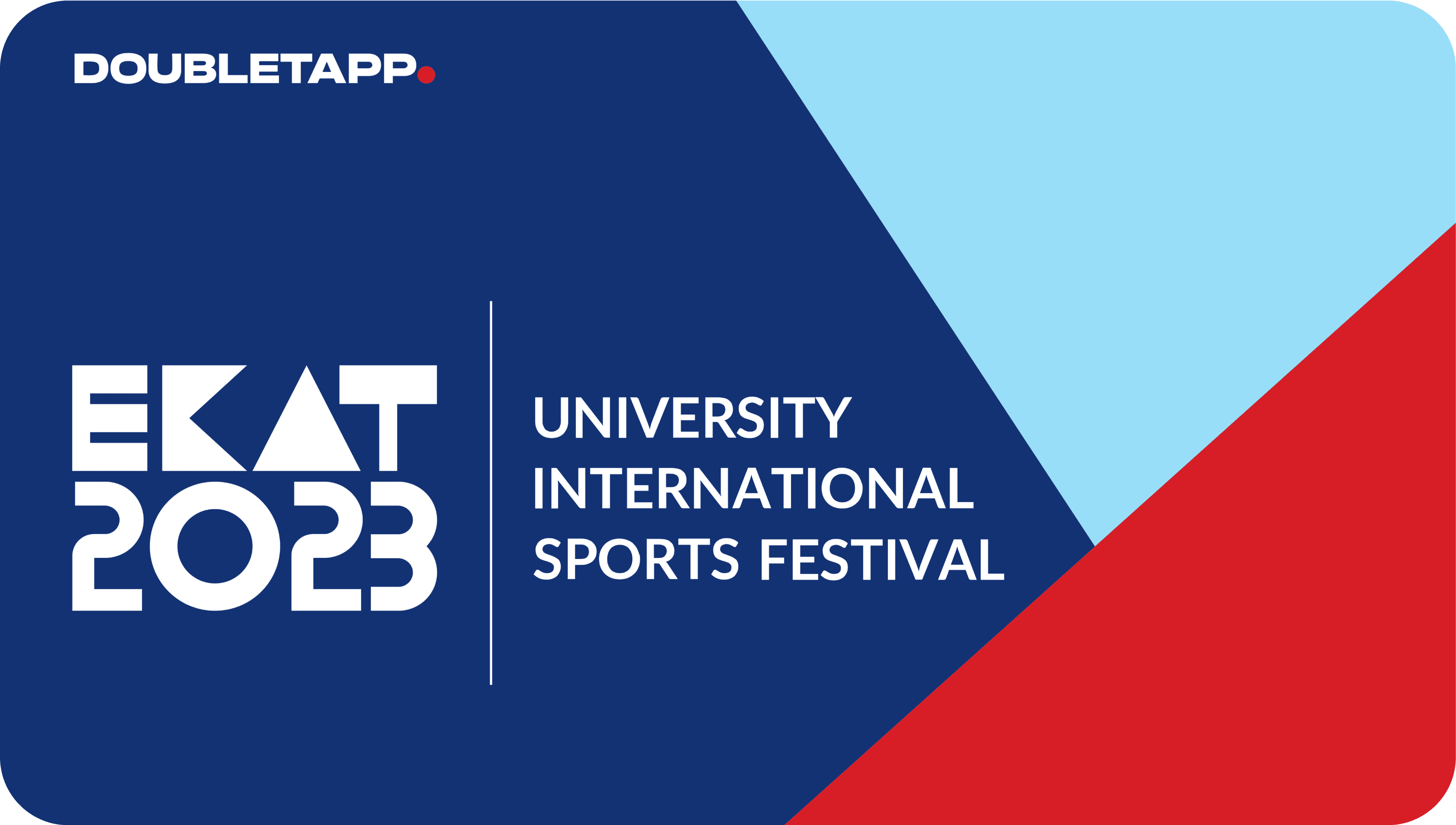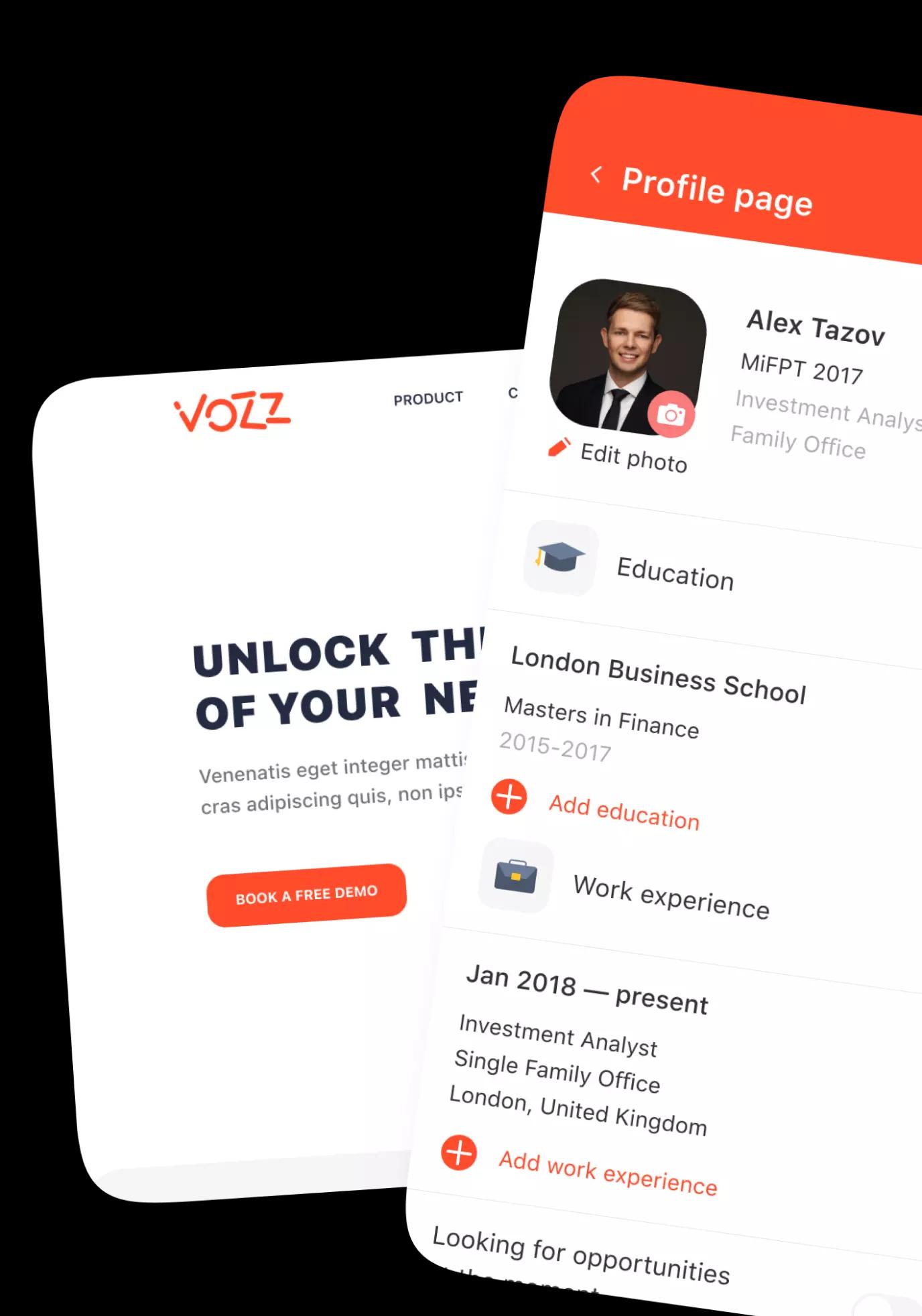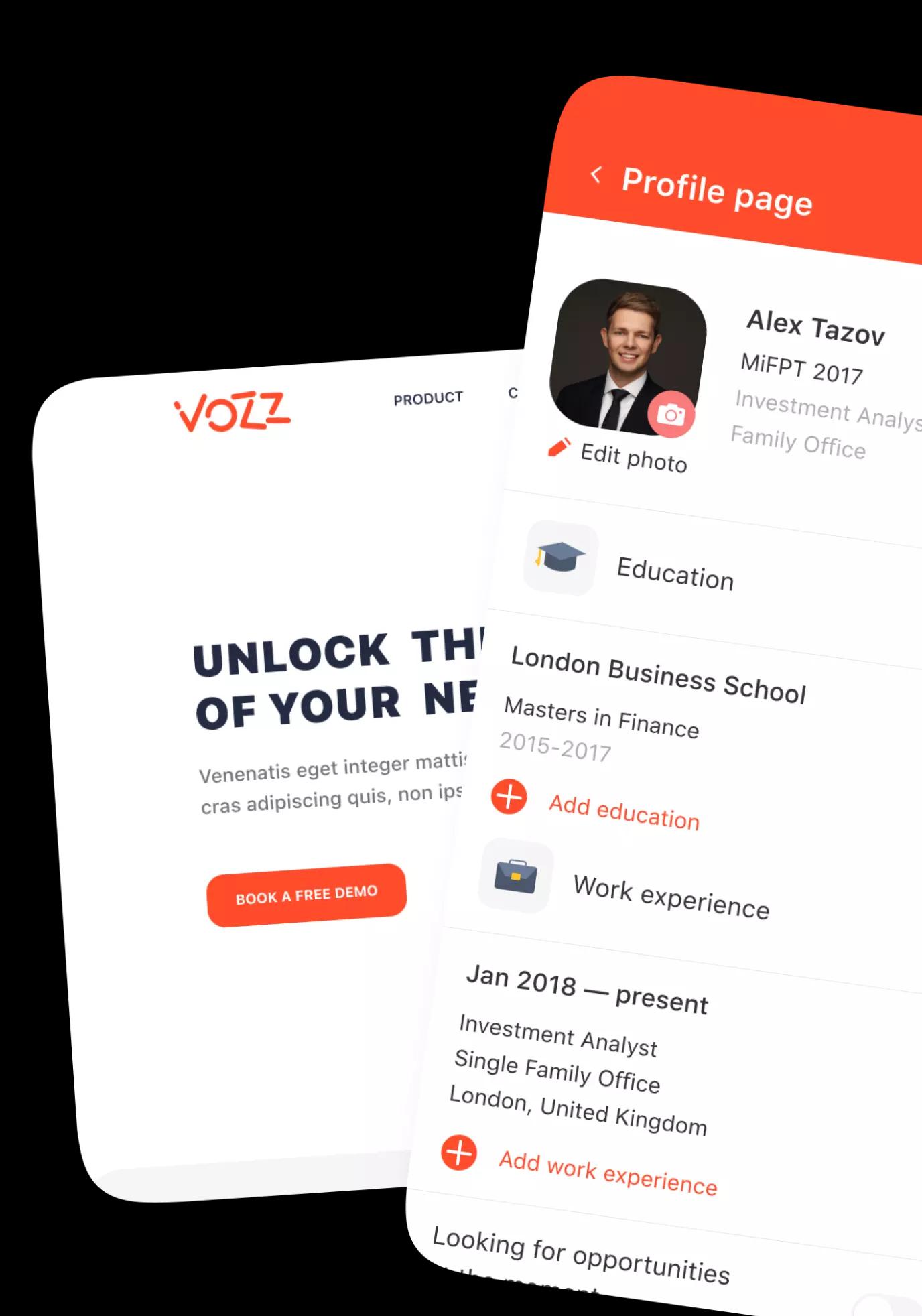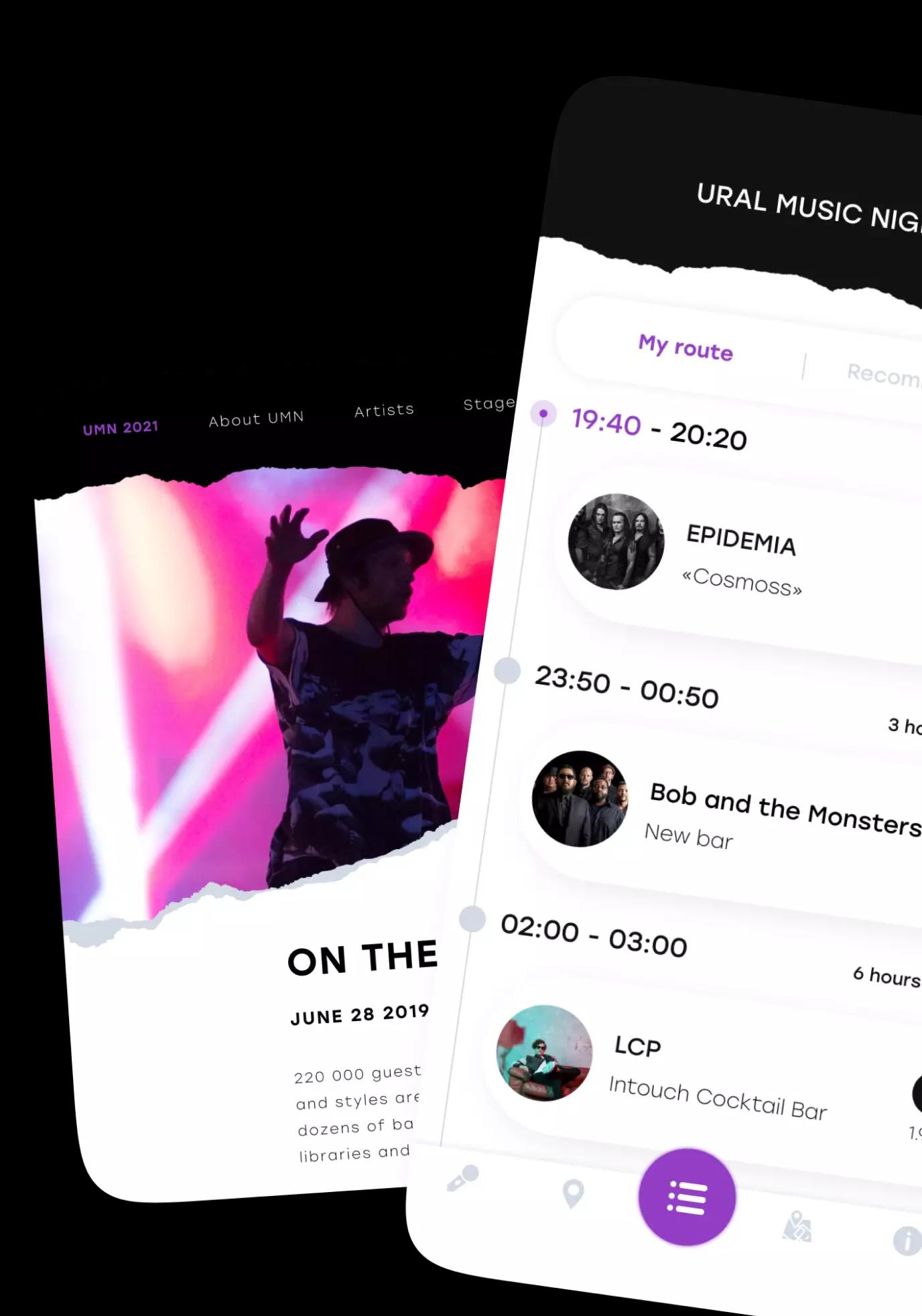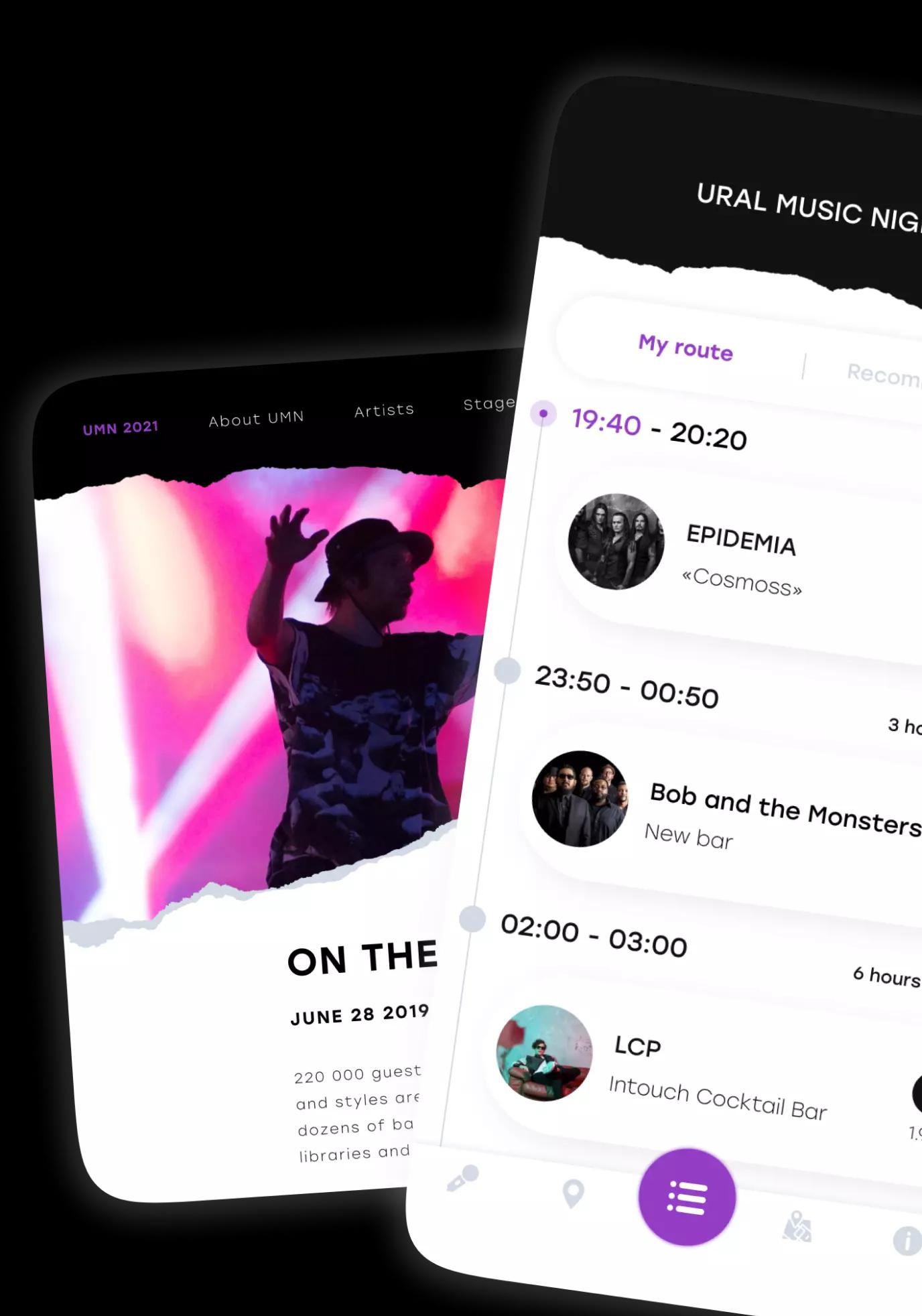Project
About project
About project
About project
The University International Sports Festival with teams from BRICS, SCO, and CIS countries took place in Ekaterinburg from August 19 to 31, 2023. It featured 36 participating countries, 3500 athletes, 193 medal sets, 14 sports, and 6 sports facilities, 4 of which were built specifically for the festival. Eekaterinburg, celebrating its 300th anniversary this year, hosted the only major international sports event in Russia in 2023.
The event's audience included athletes, volunteers, spectators, local residents, and the business community of Ekaterinburg. The festival aimed to solidify Ekaterinburg's status as a city with vast opportunities for sports development and to create an unforgettable celebration for its residents.
For the festival, we developed the website in Russian and English versions, along with an internal administrative panel for the organizers. During the event, Doubletapp employees were on standby at the client's office, ensuring the seamless operation of services.
Task
Task
Task
The organizers chose us as the service provider for creating the internet portal of the University International Sports Festival. The task was challenging due to the tight deadline. According to industry colleagues' estimates, such projects usually require at least six months. Our team had to complete everything in just one and a half months.
Besides the colorful website with animations, videos, schedules, live broadcasts of competitions, integrated ticket purchase service, city and festival news, as well as legal and organizational information for participants, spectators, volunteers, media, and city guests, we also had to develop an administrative model for the organizers and train them to use it.
During the festival, representatives of the Doubletapp team had to be on standby at the organizers' office to provide technical support in case of technical issues.
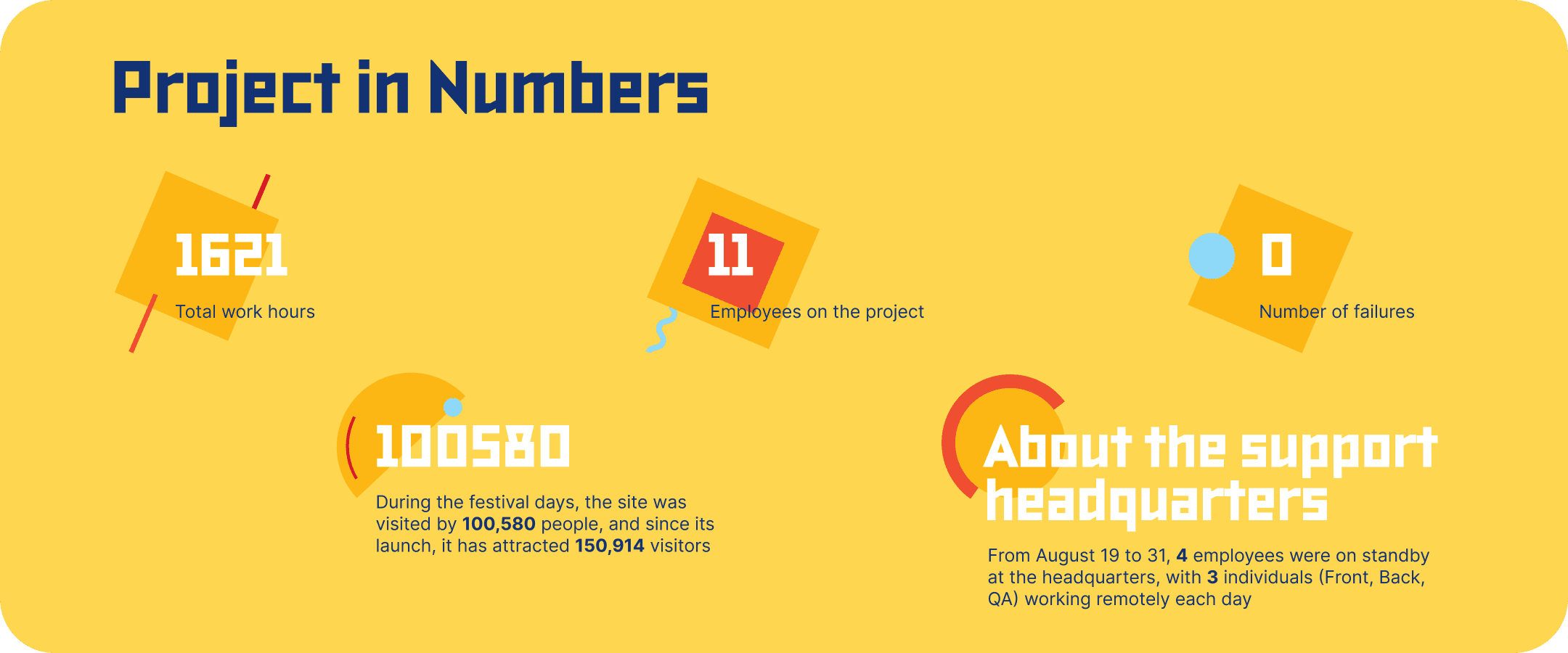
Result
Result
Result
Developers received the requirements specification on June 22, and the first release of the site was launched on August 1 (4 days ahead of schedule!). The product fully meets the international status of the event.
Language support: all information is available in Russian and English.
Search convenience: in the desktop version, a menu with a dropdown list of categories is located at the top of the main page, and it is also duplicated in the right-side sidebar. All content is divided into small articles with clear headings ("Arrival and Departure," "Media Accreditation for the Festival," "Broadcasts," "Tickets," etc.) and opens on separate pages. The page hierarchy goes from general to specific.
Adaptive layout: even on a small mobile phone screen, the site opens correctly, and all control elements are accessible.
Fast page loading: thanks to code optimization and oversight by the standby team, the site operates smoothly without any glitches, and pages load smoothly.
Fresh content: during the festival, organizers published news and urgent announcements 2–3 times a day, maintaining the relevance of competition schedules, posting game results and changes in medal standings, and adding live broadcasts. In total, 300 news items were uploaded, sortable by topic and importance level.
Interaction tools with the site: the portal not only provides useful documents and festival news but also features:
• a ticket selection and purchase service, with a seamless transition to an external site for ticket selection and payment
• updated schedules, game results — sortable and viewable by individual sports
• competition live broadcasts
• shuttle schedules for trips to sports facilities
• news subscription, and integration with social networks
Design: we not only provide information but also create an overall impression of the city, country, and competition atmosphere for festival guests. Website branding tools are at work — layout, logo, font, mascot. We used the materials of the original brand book carefully.
We developed an administrative panel with a set of functions, in agreement with the organizers' request:
1) Content management tools:
• organizers can create, edit, and delete sections, change their hierarchy
• post and edit announcements and news, documents for download
• upload and download photo and video materials
• connect broadcasts
• update schedules and competition results
• create directories and classifiers (e.g. by sport).
Filtering, sorting, and searching are available.
2) Analytics tools — display data on site visits, time spent, user actions + possibility of information export.
Our super team
 MariiaQADmitriiManagement
MariiaQADmitriiManagement ValerieManagement
ValerieManagement RuslanManagement
RuslanManagement AnnaBackendVsevolodBackend
AnnaBackendVsevolodBackend EkaterinaBackend
EkaterinaBackend PavelFrontend
PavelFrontend AndreyFrontend
AndreyFrontend ValerieFrontend
ValerieFrontend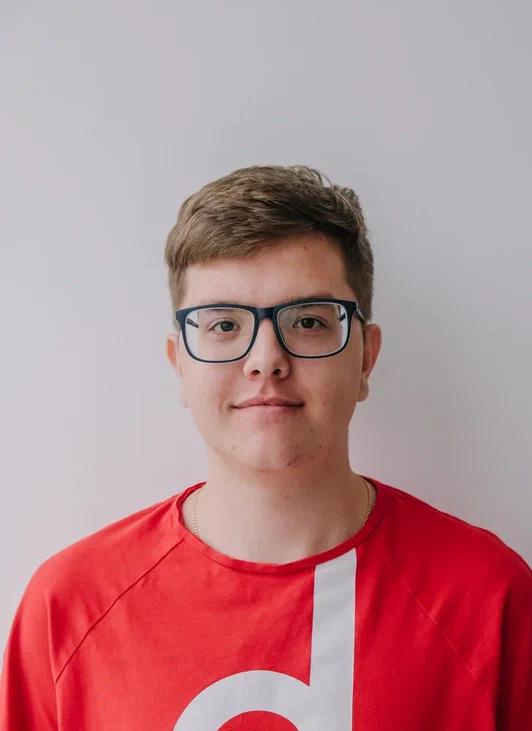 NikitaDevOps
NikitaDevOps IlyaDesign
IlyaDesignProcess
Process
Process
Frontend
Our frontend developers, drawing on their wealth of experience, noted that working on the website posed no significant challenges for them. Creating new pages, collecting feedback, and coordinating edits took 1.5 months in total.
Backend
Backend developers faced interesting tasks: they developed an admin panel through which organizers could upload images and texts for news, competition information, and connect broadcasts — simply by entering the required link from social networks into the admin interface.
To ensure quick mastery of the admin panel by organizers, we recorded video tutorials and conducted training sessions. Whenever new features were added to the admin panel, we created additional useful video content.
As a result, the content remained always up-to-date, with timely updates on medal standings, competition schedules, downloadable documents, etc. During the festival, 300 news articles with photos and photo albums were uploaded.
Testing
Testers noted that the main challenge of the project was its tight deadlines. They conducted functional testing, layout testing, and responsiveness testing — ensuring the site and administrative panel worked across different resolutions, in most browsers, and on desktop, mobile (iOS, Android) devices, and tablets.
DevOps
On this project, we had the task of migrating the infrastructure from the client's data center to a new one, without allowing the service to be down for an extended period.
The migration involved transferring a Kubernetes cluster, a PostgreSQL database, an Elasticsearch cluster, a mail server, and an FTP server.
In Kubernetes, several applications, a Ceph cluster, a Redis cluster (used for caching), a monitoring and logging system (Loki for logs, Prometheus and Grafana for monitoring) needed to be migrated.
We used CI/CD (Continuous Integration/Continuous Deployment) to automate the process of building, testing, and delivering software to production. This automation was necessary because clients often needed to make changes to the website.
The novelty of the project was deploying the k8s cluster in production mode on bare virtual machines within tight deadlines. The entire process took three weeks, but we managed it — during the festival, the site did not crash once due to our fault, despite DDoS attacks.
We apply DevOps practices to stay in line with industry standards. Simple and natural communication between people is possible without effort when the team is small and there are no special boundaries between departments. In a growing agency, for large projects, process unification is necessary—this lays a good foundation for growth (since our processes are already tailored for a large company) and makes it easier for us to hire specialists who are geared towards working in a modern agency.
